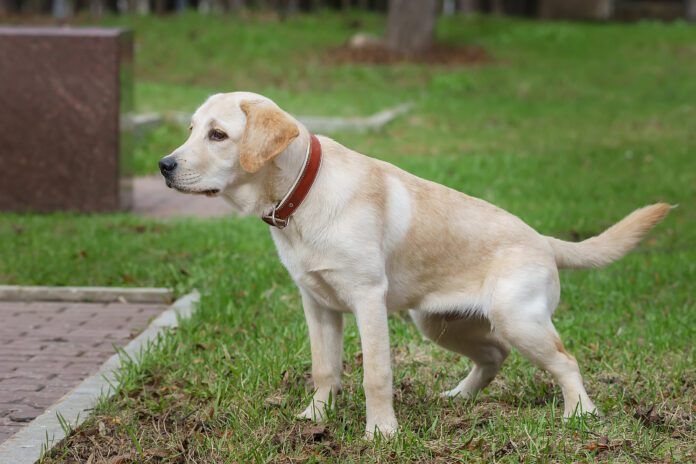Bladder stones in your dog should not be ignored. If your dog strains to urinate but nothing comes out or if he urinates and you see fresh blood, your dog may be suffering from bladder stones. Note: No urine may be an emergency, as urinary blockages can be serious.
What Causes Bladder Stones in Dogs?
Bladder stones are formed when excess minerals build up in the bladder as crystals and pack together. This could be because your dog doesn’t handle minerals properly when they hit the urinary tract or the urinary tract is faced with an excess of minerals, which could be from his diet. In addition, certain urinary pH levels can encourage the formation of different bladder stones.
What Are the Types of Bladder Stones in Dogs?
The two most common types of bladder stones in dogs are struvite (magnesium ammonium phosphate and hexahydrate) and calcium oxalate.
Struvite stone formation often follows bladder infections and the corresponding alkaline urinary pH. Female, small-breed dogs are often affected, even when young.
Calcium oxalate stones tend to develop in male small-breed dogs and are associated with acidic urinary pH values.
A third type, urate stones, are uncommon but are associated with Dalmatians due to a genetic mutation seen in many Dalmatians for the processing of uric acid. Males are much more commonly affected. Selected outbreeding to reduce that genetic mutation has been done to help many Dalmatians for the future. Careful dietary management is important for many Dalmatians to prevent stone formation.
Diagnosing Bladder Stones in Dogs
Bladder stones can be diagnosed by palpation on some dogs if they relax their abdominal muscles. A dog may have multiple smaller stones or one large one. An X-ray can confirm the presence of bladder stones. A urinalysis is important, too. There are often crystals present in the urine that, along with the urine pH, can guide your veterinarian as to which type of stone your dog has.
Urinary Stone Type Affects Treatment Choices
Treatment of bladder stones can vary. Different stone formations depend on different pH values. For example, if your dog has calcium oxalate crystals, using a urinary acidifier like cranberry supplements could worsen his condition. Typical treatments include:
Surgery: If your dog has one large stone or has a urinary blockage due to a stone, surgery is often the best option.
Urohydropropulsion: This technique can be used if your dog has multiple small stones. A catheter is passed that fills the bladder and then small stones are flushed out.
Laser lithotripsy: This laser technique can be used to break up smaller stones that can then be flushed out. Both procedures can be difficult in male dogs due to the anatomy of the urinary tract.
Dietary dissolution: Dissolving urinary stones with diet tends to be most effective for struvite stones but can also work for calcium oxalate stones. Different prescription diets are used for the process, depending on the stone type. This can take a long time to dissolve urinary stones and during the dissolution your dog may be prone to urinary infections or blockages as the stone pieces shrink. Owners MUST strictly follow the diet, which means no unauthorized treats!
Home Remedies for Bladder Stones in Dogs
Some natural therapies and herbal supplements can help to prevent stone formation or recurrence, but currently none are effective for to dissolve existing stones. There are also dog foods that help support a healthy urinary tract.
Bladder stones certainly aren’t fun for anyone, but they can be resolved with surgery or medical treatments. Recurrence can be minimized with diet and management. It would be unusual for a dog to need to be euthanized (or put down) simply for bladder stones







My first dog had many issues with bladder infections and struvite stones. When we moved to a new city with terrible drinking water quality, I began having water delivered. That one change appeared to solve most of her bladder issues. She had a couple more bladder infections, but no more struvite crystal stone formation.